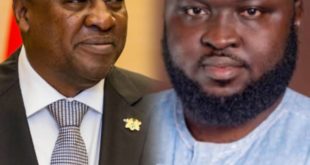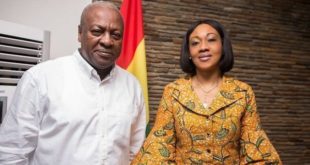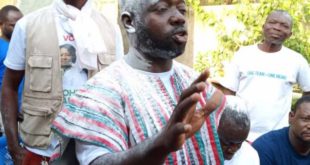The Center for Democratic Transitions has provided a draft Parliamentary Transition Bill to Rt. Hon. Alban Sumana Kingsford Bagbin, Speaker of Parliament and Chairman of the Parliamentary Services Board (CDT).
Professor Kwamina Ahwoi and Nana Ato Dadzie, both consultants with the CDT, gave him the draft bill in Accra.
The Fourth Republican Constitution’s provisions for changing parliaments include gaps and dubious legal standing, which have made it difficult to change parliaments specifically and for democratic governance in general.
The proposed bill’s goal is to promote a peaceful, orderly, and smooth transition for the legislature.
The Presidential Transition Act, which was passed for the executive for a related purpose, is comparable to but distinct from the draft legislation.
The Parliamentary Transition Bill focuses on the unique characteristics of the legislature during times of transition and the results of the past experiences.
Rt. Hon. Speaker Bagbin became aware of the need to pass legislation in the form of a Parliamentary Transition Bill as soon as he took office on January 7, 2021, following a contentious and divisive election process.
The Parliamentary Service Board, which ordered the creation of the Parliamentary Transition Bill, was informed of the proposal.
Speaking after a presentation on the draft bill and related documents, the Rt. Hon. Speaker said the Parliamentary Services Board commissioned the drafting of the bill to help bring closure to some of the unregulated and contestable aspects of what have been the processes, procedures and practices when it comes to parliamentary transition.
The draft bill, he said, looks back at what has happened in the past, takes into account the current hung parliament, considers what might happen in the future, and provides direction and guidance. He talked about instances where there have been expectations of the Speaker or the Clerk to Parliament when in reality those expectations do not exist.
Rt. Hon. Bagbin praised Professor Ahwoi and his team for the careful consideration they put into the suggestions and proposals.
He was eager to present the ideas and suggestions to the Parliamentary Service Board so that they could together determine how to maintain parliamentary democracy in Ghana.
Professor Ahwoi showed the Rt. Hon. Speaker instances of the holes the draft law will help fix as he presented it.
He claimed that up until this point, elected members of parliament who had not taken the oath of office had chosen the Speaker of the House.
He claimed that was difficult and might be illegal.
Therefore, the bill suggests that in order to conduct business, the Speaker should be chosen by an electoral college made up of elected MPs. That would assist in overcoming the present difficulty.
Professor Ahwoi added that it should be thought about asking the Electoral Commission to be in charge of the Speaker of Parliament election in order to prevent future issues and complexities.
After being chosen and sworn in, the Speaker will oversee the selection of the deputies.
According to the Presidential Transition Act, they have to be completed at least two days before the Speaker preside over Parliament for the swearing-in of the President-elect of the Republic.
The Parliamentary Transition Act will regulate how the offices of the Speaker, Leaders of the House, and MPs transition from one person to another after it has been approved, considered, and enacted. This will promote continuity, sustainability, and eventually improve parliamentary democracy in Ghana.
Mr. Cyril Nsiah, the Clerk to Parliament, and other members of the Parliamentary Service were present for the presentation.
Source: Ghanatodayonline.com
 Ghanatodayonline.com News, Politics, Health, Education & More
Ghanatodayonline.com News, Politics, Health, Education & More



